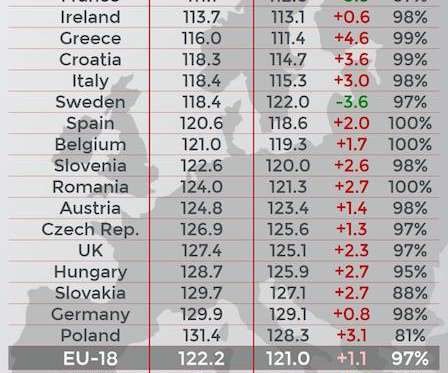EEA: average CO2 emissions from new cars and new vans in Europe increased in 2018
Green Car Congress
JUNE 25, 2019
Manufacturers will have to reduce emissions of their fleet significantly to meet the upcoming 2020 and 2021 targets. The main factors contributing to the increase of new passenger cars’ emissions in 2018 include the growing share of gasoline cars in new registrations, in particular in the sport utility vehicle (SUV) segment.













Let's personalize your content